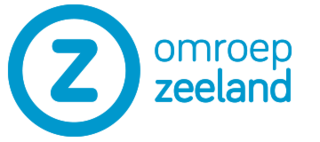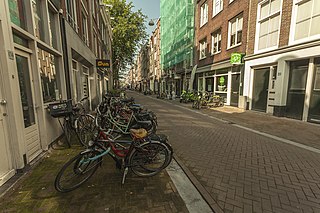
Johnny Jordaan was the pseudonym for Johannes Hendricus van Musscher, a Dutch singer of popular music, in particular the genre known as levenslied, a Dutch variety of the French chanson. He was well known for his songs about the city of Amsterdam, especially the Jordaan district, which he sang in a typical "hiccuping Mokum vibrato", "Mokum" being the Hebrew-derived nickname for the Amsterdam inner city area. In the 1950s, Johnny Jordaan rose almost instantly to the level of national celebrity and became the "uncrowned king of the Jordaanlied", and his hit song "Geef mij maar Amsterdam" is one of the songs Amsterdammers identify with most.

Dennis "Danny" de Munk is a Dutch actor, singer, musical actor and former child star.

Patty Brard is a Dutch entertainer of Indo (Dutch-Indonesian) descent. She is a TV personality and a singer notable as a former member of the girl group Luv'. For four decades, she has often hit the headlines of the tabloid press.

Michaël Henricus Gertrudis (Michiel) van Kempen is a Dutch writer, art historian and literary critic. He has written novels, short stories, essays, travel literature and scenarios. He was the compiler of a huge range of anthologies of Dutch-Caribbean literature and wrote an extensive history of the literature of Suriname, in two volumes.
Willem Philippe Maria "Wim" Zaal was a Dutch journalist, essayist, translator and literary critic. He was literary editor of Elsevier for years.
Robine Tanya van der Meer is a Dutch actress and model. She is best known as Meike Griffioen in Goede tijden, slechte tijden and for hosting the TV-show Model in 1 dag.

Sybe Minnema, known by his pen name Sybren Polet, was a Dutch prose writer and poet. He won numerous awards, among them the 2003 Constantijn Huygens Prize.

Wilhelmina Drucker was a Dutch politician and writer. One of the first Dutch feminists, she was also known under her pseudonyms Gipsy, Gitano, and E. Prezcier.

Dolf Jansen is a Dutch comedian, host of the Radio 2 programme Spijkers met Koppen and an active Marathon runner. On television Jansen hosted Loods 6 (1991), Kunstbende (1992), Jansen slaat door (TROS) (1993) and Jansen op jacht (2007). He performed together with Hans Sibbel as the comedy team 'Lebbis en Jansen', but also performs as an individual comedian. He also is an ambassador of Oxfam Novib.

Tonnus Oosterhoff is a Dutch poet and writer.

Ellen Jens is a Dutch television director and producer, best known for her collaboration with Wim T. Schippers on VPRO television. She has produced and directed a large number of other television shows, especially on literature and art, and is referred to as a "television legend".

Silvana Hildegard "Sylvana" Simons is a Surinamese-born Dutch politician and former television presenter. She has been a member of the House of Representatives since 2021 on behalf of BIJ1, an egalitarian anti-racist party founded by Simons in 2016.

BIJ1, formerly known as Article 1, is a political party in the Netherlands. It was founded in Amsterdam in 2016 by Sylvana Simons, a television personality who was formerly connected to another party, Denk. BIJ1 aligns itself as an anti-capitalist, progressive left-wing party, advocating economic justice and fighting racism and discrimination in the Netherlands.

Omroep Zeeland is a public broadcaster located in Zeeland, Netherlands. Founded in 1988, the media organization is active in television, radio, and internet. The audience is on average slightly older than that of the other Dutch regional broadcasters.

We Are Here is a collective of migrants based in Amsterdam, the Netherlands, which campaigns for human rights for its members and all undocumented migrants. The asylum seekers have in many cases had their applications to remain in the Netherlands denied but they either cannot go back or refuse to return to their country of origin. They ask for access to social services such as medical care and housing. The group formed in 2012 and by 2015 contained over 200 migrants from around 15 countries.

Kauthar Bouchallikht is a Dutch politician, climate activist and publicist. She was elected to the House of Representatives in the 2021 general election on behalf of the green political party GroenLinks. Bouchallikht is the first member of parliament in Dutch parliamentary history to wear a hijab. She is also known for her activism in the climate movement.

Don Guno Maria Ceder is a Dutch lawyer and politician, serving as a member of House of Representatives since the 2021 general election.
A process of cabinet formation took place following the 2021 Dutch general election, leading to the formation of the Fourth Rutte cabinet in 2022. The coalition consists of People's Party for Freedom and Democracy (VVD), Democrats 66 (D66), Christian Democratic Appeal (CDA) and Christian Union (CU), the same parties that formed the preceding Third Rutte cabinet. At 299 days, it was the longest formation in Dutch history.

In the evening of 6 July 2021, Dutch investigative journalist and crime reporter Peter R. de Vries was shot in the head after leaving the television studio of RTL Boulevard in Amsterdam where he had appeared as a guest. Several bullets were fired at him in the Lange Leidsedwarsstraat, near the Leidseplein, while he was walking to his car. He was taken to the VU University Medical Center in critical condition. De Vries died of his injuries on 15 July 2021.
















